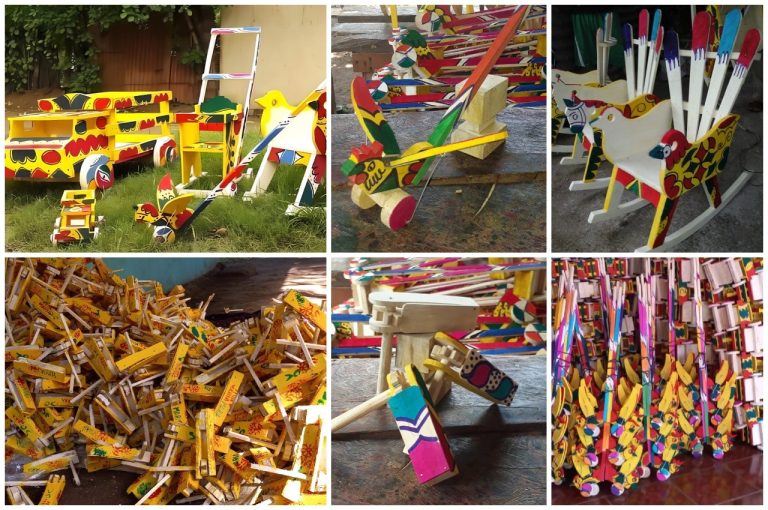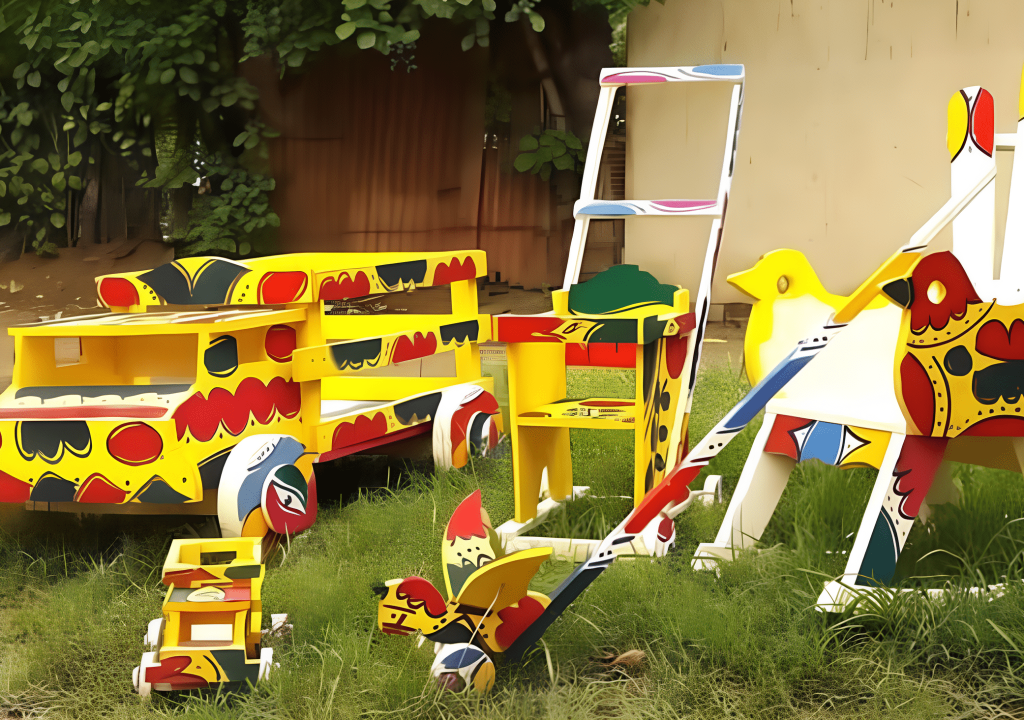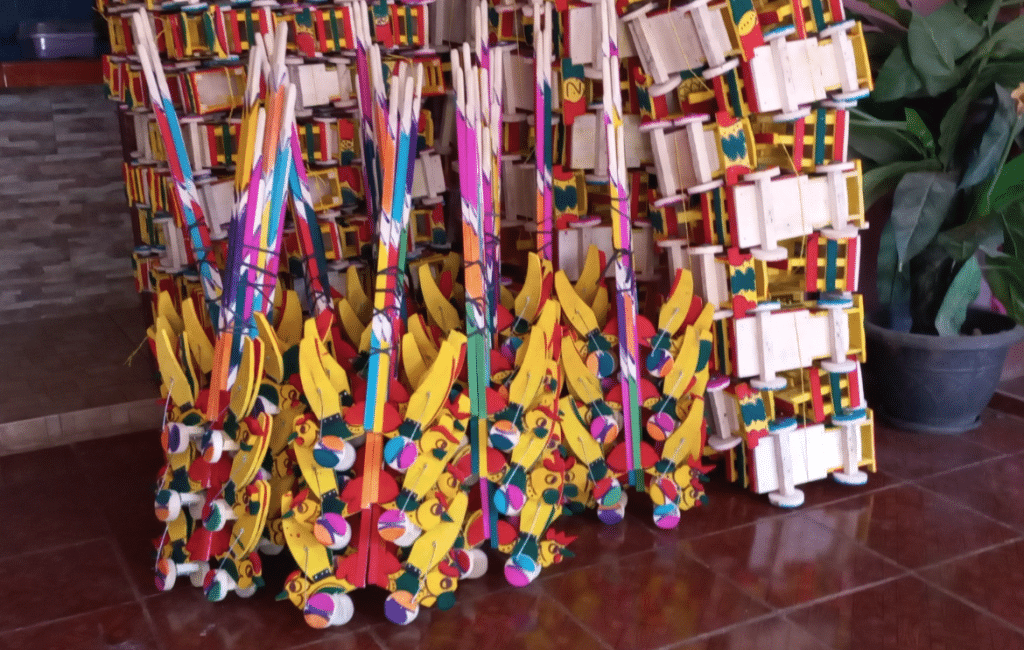11 de junio 2024

OAS Permanent Council Unanimously Approves Draft Resolution on Nicaragua

PUBLICIDAD 1M
PUBLICIDAD 4D
PUBLICIDAD 5D
A shortage of craftspeople and a lack of interest in the trade among younger generations has forced many workshops to close. They are now "rare and few

In the Pacayita district of Masaya, eight of the ten craft workshops that produce wooden toys and other traditional products no longer exist. Emigration is leaving the workshops without craftspeople, and the younger generations show little interest in continuing to make traditional handicrafts.
The handicraft workshop "Juguetes Castro," which has been in business for more than fifteen years, is one of the last workshops in Pacayita. The closing of so many businesses threatens the continuity of its "cultural heritage," represented by colorful wooden trucks, flapping birds and noisemakers.
"There are few people who still want to work in this trade. People are looking for a better life. Many have left the country," says an artisan from the Castro toy workshop.
Emigration of locals makes labor scarce, and without artisans most workshops must close.
Margarita, a Pacayita inhabitant, says that her husband decided to emigrate to the United States in 2022 to improve their family's income. He used to make handicrafts in workshop that no longer exists.
"My husband left because he couldn't earn enough here. We were in debt and what he earned could no longer make ends meet. He left with a number of people from right here in Pacayita," she says.
The few remaining workshops in the community also make wood furniture, but they have had difficulty finding craftspeople and carpenters.

"The owners of the workshops walk around, looking for people to work there, but a lot of the men have left," says Margarita.
Pacayita is a community located southeast of the municipality of Masaya. It has fertile land for the cultivation of colorful ornamental plants, which has given Masaya the nickname "the city of flowers." It is also known for the skill of its artisans, now increasingly scarce.
Emigration from Pacayita accelerated in 2022. "Many entire families have left. There are houses where only women and children live, because the adult men, like the father and the kids over 18, have left," says another inhabitant of the community.
Following the socio-political crisis of 2018 and the authoritarian radicalization of the dictatorship in Nicaragua, more than half a million Nicaraguans have emigrated to the United States, while more than a quarter million have opted for Costa Rica or other countries, according to data reported by Nicaraguan political scientist Manuel Orozco, director of the Migration, Remittances and Development program of the Inter-American Dialogue.
"That number really spiked with the crackdown in 2021, and since then there has been an uncontrollable outflow, depopulating people's homes," Orozco wrote in an article published in CONFIDENCIAL in mid-May.
Another reason workshops are closing is the lack of interest among the younger generations to continue with the work of making handicrafts.
"We do our best to teach younger artisans, but the truth is that many come only half-heartedly to learn and they don't really want to commit, so it's better that they don't continue," laments one artisan.
Mariana, another local craftswoman, questions how long they will be able to keep up the tradition of making these crafts, which, she says, is "gradually disappearing."
"We used to see a bunch of local craft workshops, but now they are few and far between," says Mariana. There are only around twenty traditional craftspeople still dedicated to this work, generating concern because successive generations are not picking up the mantle. "This is art that our ancestors bequeathed to us, using the tools they had back then. They dreamed that these crafts would continue to be made for generations to come, but we're losing the tradition," laments Mariana.

The other remaining workshop in Pacayita is going through a rough patch. One of the artisans says that currently they are "not working very much" because it's the low season. She is waiting for November and December, when sales will increase due to the Purísima and year-end celebrations, and she already has regular customers on board.
Cano says that other workshops "have been in decline" because "there are older artisans who have passed away and their children don't want to continue with the tradition."
Years ago, in the streets of Pacayita, there were many storefronts selling traditional toys, and also workshops where baskets, rattles, noisemakers and other items were made, especially for Purísima and Gritería festivities. Now there are still some storefronts, but only two workshops survive.
The prices of most of the small toys are under 100 córdobas each (less than $3). The emblematic colorful toy trucks, on which a child up to three years old can ride, start at about 300 córdobas (around $8.50). There are discounts for bulk orders.
But at this rate, artisans fear that their products will live on only in photographs.
This article was published in Spanish in Confidencial and translated by our staff. To get the most relevant news from our English coverage delivered straight to your inbox, subscribe to The Dispatch.
PUBLICIDAD 3M
Confidencial es un diario digital nicaragüense, de formato multimedia, fundado por Carlos F. Chamorro en junio de 1996. Inició como un semanario impreso y hoy es un medio de referencia regional con información, análisis, entrevistas, perfiles, reportajes e investigaciones sobre Nicaragua, informando desde el exilio por la persecución política de la dictadura de Daniel Ortega y Rosario Murillo.
PUBLICIDAD 3D